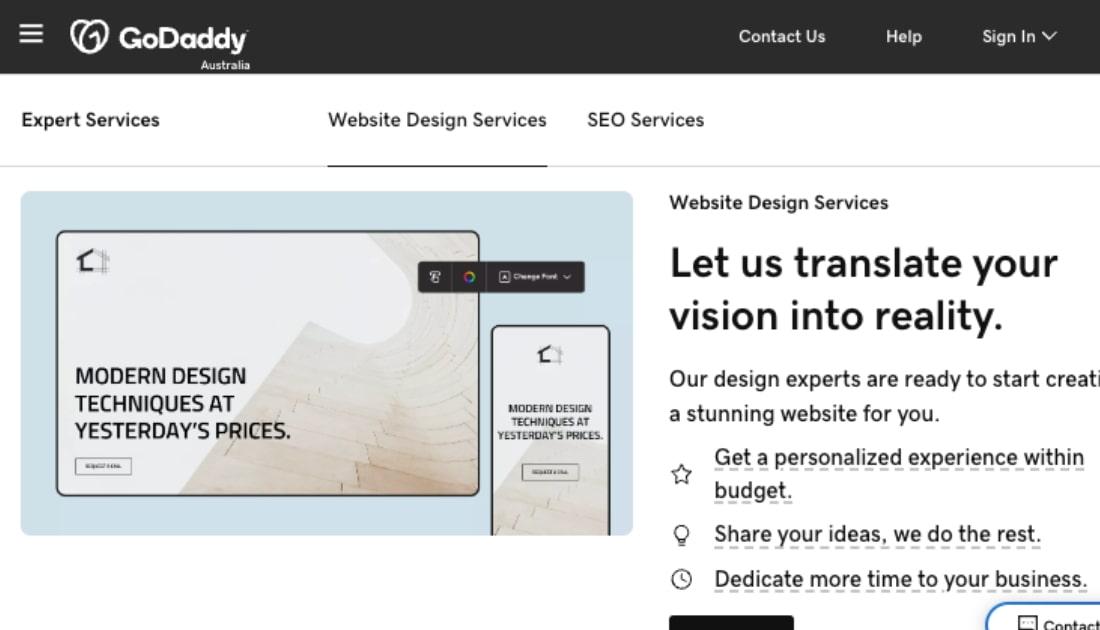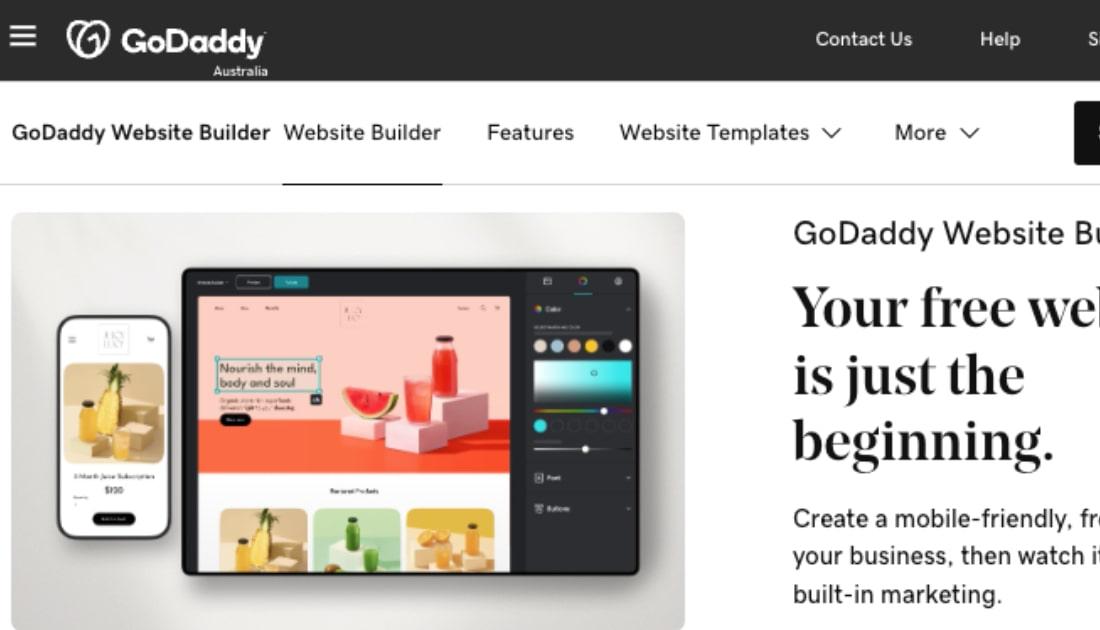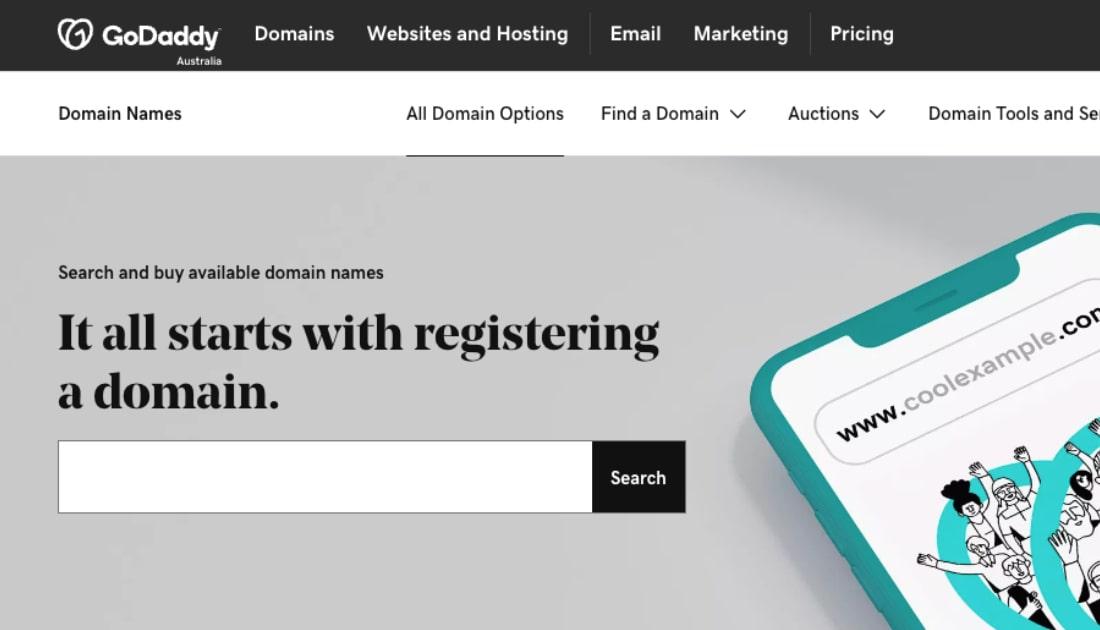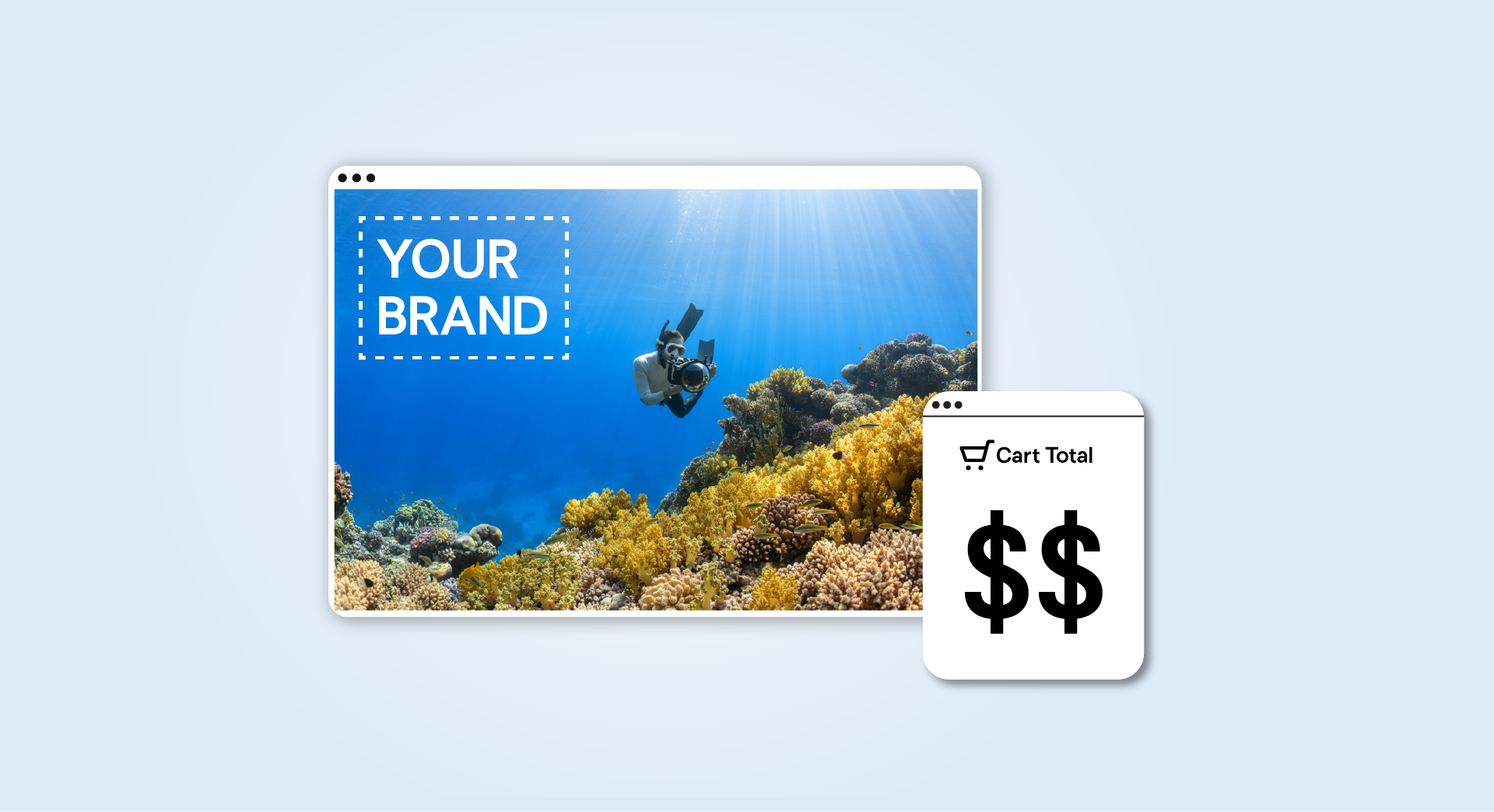You’ve decided it’s time to go out on a limb, pursue your dreams and become your own boss.
You’re not alone. In fact, the latest new business registration figures from the Australian Bureau of Statistics show that over 406,365 new businesses were started nationally during the last financial year alone.
There’s a lot to learn when you start a new business.
But where should you begin?
Don’t worry — this post will walk you through how to start a business step by step. From deciding what to sell through to legally registering it and making your first sale, it’s all here.
1. Research your business idea
It’s easy to get caught up in the hype of starting your own business, but you really should do some research before diving in too deep. If your product/service is already being offered and has fierce competition, it’s worth knowing that upfront. It can help you identify competitors – but also niches within that business space that could be profitable.

That great business idea you thought up in the shower might or might not be worth pursuing.
It is important to recognise where real opportunity lies, or where you might just be wasting time and effort. Many businesses fail, especially in the current economic climate and you don’t really want to join their ranks.
Start off by doing your homework
This involves necessary market research, because you’re not just investigating other similar businesses, but also taking stock of the wider business landscape.
What you need to do is get under the skin of your industry as well as your target audience. In addition to gathering industry insights and data, you should build buyer personas that represent your ideal target audience.
Related: How to find your target market
Here are some market research and analysis ideas:
- Conduct consumer surveys across channels (phone, email, social media, mobile app, etc.).
- Hold focus groups to gain a deeper understanding of how your target audience might view your idea.
- Watch how your target audience engages with potential competitors on social media as well as the related subject matter they’re discussing online.
It’s worth checking enthusiast groups or the actions of influencers to help you identify profitable or under-served niches, as well as those that are already saturated and not worth entering.
Explore public data on your target market to learn about their buying patterns.
This will help you validate your idea while giving your business planning a definitive direction—which brings us onto our next point.
Find out everything you can about what you’re hoping to do. Have you found a need that no one else is meeting? Or are you one of countless many to offer this particular product or service? Be open to feedback from those in the know to increase your chances of success. Above all, if your first idea is already being done very well by other businesses, let it go.
Related: Top 10 trending products to sell online
2. Create a business plan

Now your idea is validated and you’ve got a handle on your target market, you’ll need to start planning. When it comes to knowing how to start a business, developing your plan methodically is a vital skill. Here are some tips to help you easily navigate the process:
- Consider your “why”. This will help you gain an understanding of your key motivations for starting your business as well as what you want to achieve
- Outline plans of action or initiatives that represent your brand mission and what you do
- Define your key business goals using timelines and milestones to keep you on track
- Write an executive summary that states all essential information related to your business’s aims, goals, and products
Check out this article for a comprehensive, step-by-step guide on how to build a business plan.
3. Work out financing
It takes money to make money and this is especially true for start-ups. Luckily, you have some options here.
To get your business off to a flying start, you’re going to need to get the right level of financing to increase your chances of success. The funding options you explore will depend on the type of business you’re looking to start. It's also important to consider initial expenses like how much does it cost to build a website, which can vary based on your needs.
One option for starting your own micro business is to do so on the side of a full-time job.
This way, you’ll have a steady source of income while you test the waters with the new business.
If you’re looking to start a solely online business from a small start and scale up, you could use your personal funds or savings to get up and running. Doing so will give you complete control on your decisions, allowing you to scale the business on your own terms.
Other options could include financing via a business or personal loan, using crowdfunding services to generate startup funds, using government grants or securing financing from external investors.
- Crowdfunding: Using dedicated crowdfunding platforms, you can inspire people to donate to your business venture in return for incentives or equity. This can be a very effective form of fundraising — and there have been many crowdfunding success stories over the years.
- Business loan: Just like you might get a loan to buy a car or get a mortgage on a property, it is possible to get a loan to start up a business. It is well worth consulting with an accredited financial professional before signing up for a business loan, as terms, limits, and interest rates may vary considerably. Being aware of what you’re signing up for and your potential liabilities is vital.
- Government grant: Another way of securing a healthy level of funding for your business is getting a grant. Depending on the nature of your business plan, who the business is targeting and where you’re located, you may be eligible for government funding support at a federal or state level.
- Pitch to investors: Researching investors in your niche and pitching to them is an excellent way to get funding as well as professional backing and expertise. This is certainly an avenue worth exploring if you’re looking for startup capital as well as help with your business’s launch and development activities, but you do need to consider the realities of having external investors and what that might mean for your business income and direction in future years.

Australia also has some grants and funding support programs to help get certain types of businesses get off the ground.
To track down any programs that may apply to you, search the internet for grants in the State or Territory where you’ll operate your business (for example “Grants Victoria”). Government start-up funding currently available in Australia include:
- The Start-up Finance Package which provides loans of up to $100,000 to eligible Indigenous Australians to start their own businesses
- Innovation Booster Grants of up to $20,000 to help Western Australian entrepreneurs commercialise innovative ideas
- Seed-Start Grants of up to $500,000 to help early-stage South Australian start-ups to commercialise innovative products and services
- The First Start Loans program provides low-interest loans of up to $2 million for Queensland primary producers and commercial fishers to start a viable business
- Agristarter Loans of up to $2 million for first-time farmers
This is just scratching the surface of what’s available to enthusiastic small business entrepreneurs. The Australian Government’s business portal can also assist you in locating and applying for eligible business grants.
Finally, if you have no other finance options (or you need more finance), you can apply for a business loan through a commercial (i.e. non-government) lender.
Improving your odds of success
You will increase your chances of getting any business loan approved if you have:
- A thoroughly researched business plan and proof of concept.
- A realistic budget that shows you will be able to afford your loan repayments
- A good credit score. Lenders will check your credit score as part of assessing your business loan application. You will have a good credit score if you have a history of paying all your debts on time. This includes obvious debts like loans and credit cards, as well as less obvious debts like mobile phone or electricity accounts.
- Assets you can provide as security for the loan. For example, property that you own or partially own.
4. Choose your business structure
Choosing the right business structure is important, as each of the four options below have pros and cons. Which structure you choose affects your:
- Ongoing cost and amount of paperwork

- Number of licenses needed
- Personal liability (in case the company is sued or goes bankrupt)
- Level of control
- Tax obligations
If you’re setting up a business in Australia, you have these business structures to choose from:
Sole trader
As a sole trader, you are legally responsible for all business debts or losses, as well as any profits. You must also pay super for all workers (except yourself).
Related: What are the tax differences between a sole trader and a company?
Company
A company has higher setup costs and more paperwork. This structure is run by directors (you) and owned by shareholders (those who fund your business). You must pay super guarantee contributions for any eligible workers, including yourself.
Partnership
A partnership is two or more people who run a business together. Each partner shares the business’ income, losses and control. A partnership is inexpensive to set up and run.
Trust
This is an entity that holds property or income for the benefit of others.
This can be expensive, as it requires a formal deed.
There are also yearly administrative tasks for the trustee.
Keep in mind that you’re not locked into any one structure; you can change the structure as your business grows. If you’re not sure which one is right for you, talk to a tax, business or legal adviser.
5. Apply for an Australian Business Number (ABN)
Applying for an Australian Business Number or ABN is the next step to setting up your own business.

Don’t confuse your 11-digit ABN and your Tax File Number, even if you are operating as a sole trader. An ABN makes it easy for the government and other businesses to identify your business.
Check the website linked above to find out which (if any) other business or tax registrations you need.
6. Decide on a business name
It can be tricky to find a business name that no one else is using. Get tips on coming up with a memorable business name in How to name a business.
Or, for a little AI-powered help, take a look at GoDaddy Airo™.
You simply tell Airo™ a few things about your business idea and it will brainstorm some names for you.
For example, we asked it to suggest names for a shop that only sold pink products.
Airo™ suggested everything from the very simple yet effective pinkshop.au to rosetintedtreasures.com.
Before settling on your name, jump on the ASIC Connect website to search the Business Names Register. There’s no point in choosing a name that isn’t available.
Once you’ve chosen a business name, register it at the ASIC site linked above.
If you’d like to keep others from using it, register a trademark for your business name. This gives you the exclusive legal right to use, license and sell your trademark.
7. Register your website domain name
If you’re serious about your small business, you’ll want to build a website.
More and more Australians are looking online for everything from the nearest Thai takeout to where to buy gifts.
So this is a step you simply cannot afford to ignore, even if your business doesn’t specifically sell online. A website is a great way to make sure your business shows up when they search for what you provide.
The good news is it's easier and cheaper than you think to build your own website.
If you've used GoDaddy Airo™ (mentioned above) to brainstorm a domain name and you like one of the suggestions, you can go ahead and buy that domain.
Now here's where it gets exciting.
Once you've got your domain, AI-powered Airo™ will create a website for you, complete with free images and ready to use text, all related to your industry.
You can replace images, play around with layout, and edit the copy if you like, but essentially it should be good to set live.
You’ll also get access to a Logo Maker and a free trial of a professional email address that’ll make you look like you really mean business to new clients.
With your website set up, it’s easy to take it to the next level using Website Builder to add functionality or Online Store to start selling products.
A couple of golden rules apply when registering a website domain name. Ideally, it should:
- Describe your business
- Be easy to spell and remember
- Not contain abbreviations, dashes or numbers (unless there’s a number in your company name)
As with business names, you won’t be able to use a domain name that someone else is using.
Editor’s Note: Already got your desired name from another registrar? Transfer your domain to GoDaddy to manage all aspects of your business from the same place.
Check to see if the name you want is available now!
8. Set up a business bank account
If you’re operating as a sole trader, it’s a good idea to have a distinct business bank account in order to create a clear business structure.
It will make it easier to meet your tax and financial reporting obligations.
If you’re operating as a partnership, company or trust, you must have a separate bank account to meet your tax obligations. Find out more about business bank account needs here.
9. Organise any necessary licences or permits
Certain types of businesses require a licence or permit to operate in Australia. These licences and permits vary based on four main factors:
- The type of business you want to run and products you want to sell or services you want to supply
- Any relevant local, State or Territory laws for that type of business in the area where it will be located
- Your business structure (e., whether you will have a sole trader, company, partnership or trust structure)
- How your business will operate (for example, your operating hours)
You can find out about any licenses or permits you need to run specific types of businesses in different locations across Australia here.
For example, if you want to open a café in Sydney with a partnership business structure, you will need a permit from the relevant local council. This permit will require you to comply with the safety provisions of the Food Standards Code. If your café will be serving any alcohol, you would also need a liquor licence.
10. Find your first client

Congratulations! Your business is up and running and you’re ready to start earning money. But where do you find your first customer?
- Your own network of family and friends is a good place to begin. Let everyone know about your new business, what you do and why you’re better than similar businesses.
- Set up a Facebook business page to promote your products or services. You can even sell directly from Facebook.
- Claim your Google My Business listing and fill it out completely. This will also put your business on Google maps.
- Use LinkedIn’s professional network by creating an engaging profile and connecting with potential clients.
- Join a business network and start making connections.
- You can also look for local business directories that will list your business, including your website domain name.
Editor’s note: Bring new business in the door with a website. Build it yourself — truly no tech skills needed! — or let the pros at GoDaddy build one for you.
Easy businesses to start
Here are a few examples of easy businesses to start:
- Web design. If you can help a business to design a website, then you can court potential customers for your web design business from anywhere in the world.
- Virtual assistant. With an increasing number of workers operating remotely both in Australia and all over the globe, there’s an increased demand for virtual assistants to do routine admin work.
- Bookkeeping. Every business needs to keep their books, and more and more are choosing to outsource this essential task to specialised bookkeepers.
- Graphic design. They say that ‘a picture is worth a thousand words’, which is why the skills of talented graphic designers will always be in demand and highly valued.
- Online store. You can sell just about anything online these days — fish shoes, bread pillows — which is why so many people are setting up online stores.
- Digital marketing. Digital marketing skills are also in high demand, whether it be social media or search engine (SEO) marketing.
- Copywriting. The internet is a hungry beast that’s always demanding fresh content, so if you’re a wordsmith, there are plenty of opportunities.
- Delivery (eg. parcels and groceries). COVID-19 restrictions saw a massive increase in online shopping, and this trend doesn’t look like it will subside, even after the restrictions have eased. That’s good news for courier businesses.
Note: Some of these businesses require specialist skills and in some cases accreditation. All except the online store and delivery services can be started with a modest initial financial outlay.
Consider this your start-up checklist
Really, setting up your own business in Australia is as easy as 1-2-3. Just follow the steps outlined in this article and enjoy the rollercoaster ride, with its ups and downs. We’ve even offered a couple of suggestions for easy businesses to start.
Whether you work out of your garage or rent a storefront, starting your own business can be a life-fulfilling adventure. Best of luck to you!
Disclaimer: This content should not be construed as legal or tax advice. Always consult a legal or tax professional regarding your specific situation.
John Coomer and Alan Kidman contributed to this post.
Frequently Asked Questions
How can I start my own business with no money?
The best way to start your own business with no (or very little) money is to keep your day job while you’re getting established. This is also the least risky way to start your own business.
Ideally, you need to start a business that has no (or minimal) upfront costs. It should also start generating revenue quickly for it to be sustainable. If you keep your day job, you can reinvest your early profits back into the business to help you to grow and hopefully reach a point where you’ll be able to quit (or scale back) your day job.
Read this post (6-minute read) for tips on starting your own business on the cheap.
How can a beginner start a business?
The best advice for a beginner starting a business is to choose a product or service that you’re passionate about. Then do your research on the market and your competition to make sure you will have the skills and capacity to compete successfully. Do this research before you start your business.
Ideally, you will want to have a competitive advantage that you can exploit, because coming into a business space that’s already crowded with similar businesses will make it extra hard for yours to stand out in any real way.
Finally, before you take the plunge, ask for advice from people who have or are running successful businesses. Make sure you go in with your eyes open.
How much money do you need to start a business from scratch?
The cost of starting a business will vary depending on your industry or business model of choice. Very small micro-businesses might only cost a few hundred dollars to start up – including registrations, web site building and so on – but for some industries accreditation, insurance and rental costs could see that push upwards from $5,000 all the way into millions of dollars.
So how can you work it all out? The Federal Government’s business portal has an excellent calculator designed to help you calculate the costs of starting up a business here that can help you get a grasp on your likely costs.
What are 3 things you need to start a business?
Three things that you need to start a successful business are:
1) A business plan As the old saying goes, people don’t plan to fail, they fail to plan. The failure rate of new businesses is high. Having a well-researched business plan can reduce your risk of failure.
2) A market for your products and services There is no point in trying to sell a product or service that no one wants to buy. If there is an existing market or competitors, why will customers choose your business? If you are developing a new market with a new product or service, enough people need to be willing to pay the right price for what you will offer.
3) The resources to implement your business plan Even if you don’t need financial resources, you need to have the physical resources and skills to successfully implement your business plan.
Can I run a business by myself?
There is no reason that you can’t run a small business by yourself. With the right resources and the right approach, you can set up, launch, and operate your business.
Going solo is more than possible, but with so much to consider it’s a huge undertaking. As your business scales, hiring a small team or getting a partner on board will be a good idea. That way, you can further accelerate your commercial growth as your business grows.
Do I have to register my new business for GST?
Goods and services tax (GST) registration in Australia is compulsory if your business will have an annual turnover that will exceed $75,000.
You only have to register within 21 days of your business turnover exceeding this threshold, so you may not need to register straight away (if at all).
If or when your annual turnover exceeds $75,000, you are required by law to charge 10% GST on all of your customer invoices. You will also be able to deduct any GST that your business is charged by other businesses.
If your business is registered for GST, you (or your tax agent/accountant) will need to submit either a monthly or quarterly business activity statement (BAS) to the Australian taxation Office (ATO) to manage your GST obligations.
What is a business activity statement (BAS)?
A BAS reports all your business tax obligations to the ATO, including:
- GST
- Pay as You Go (PAYG) tax for yourself
- PAYG withholding tax for any employees (if you have them)
If you’re registered for GST, the ATO will send you your BAS to fill out prior to your monthly or quarterly lodgement date if you’re registered for physical reporting, or remind you (or your tax agent/accountant) to do so online.
How much tax will I need to pay?
The tax you pay on your business income will depend on your business structure.
- If you have a sole trader or partnership structure, you will pay tax at your marginal rate.
When will I pay tax?
This depends on whether your business is registered for GST or not. If your business is registered for GST, it also depends on whether you are doing monthly or quarterly BAS reporting.
If you’re doing monthly reporting – typically at the direction of the ATO and for businesses where your GST turnover is $20 million or more -- you need to pay any BAS tax due by the 21st of the month after the taxable period. So for example, August’s BAS report for a monthly BAS reporting structure would be due on or before the 21st of September.
If you’re doing quarterly BAS reporting, you need to pay your BAS tax by the following quarterly dates:
- 28 February
- 28 April
- 28 July
- 28 October









